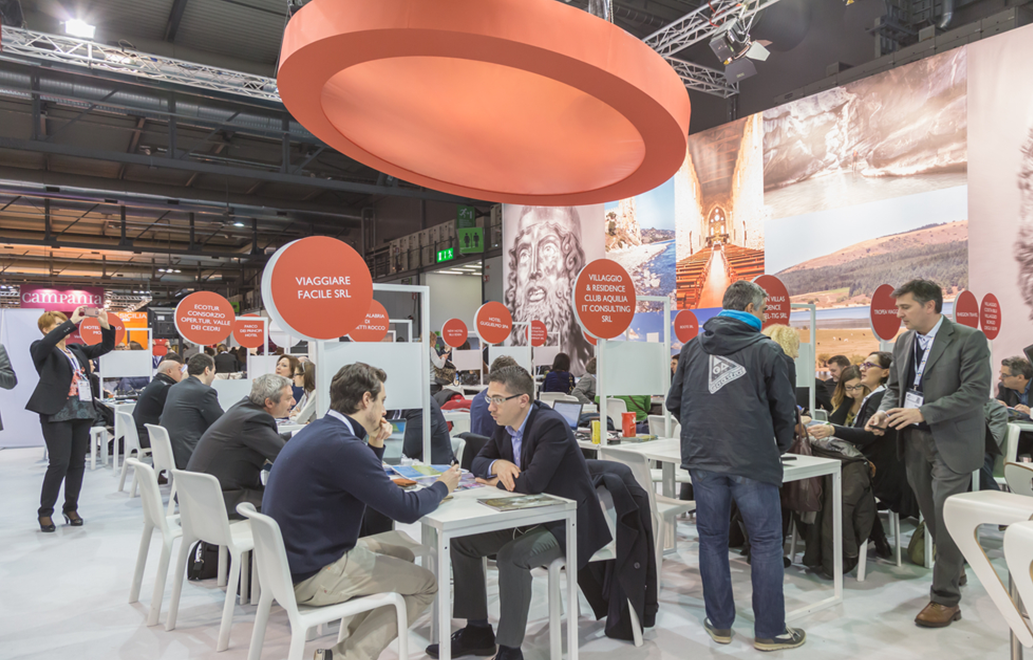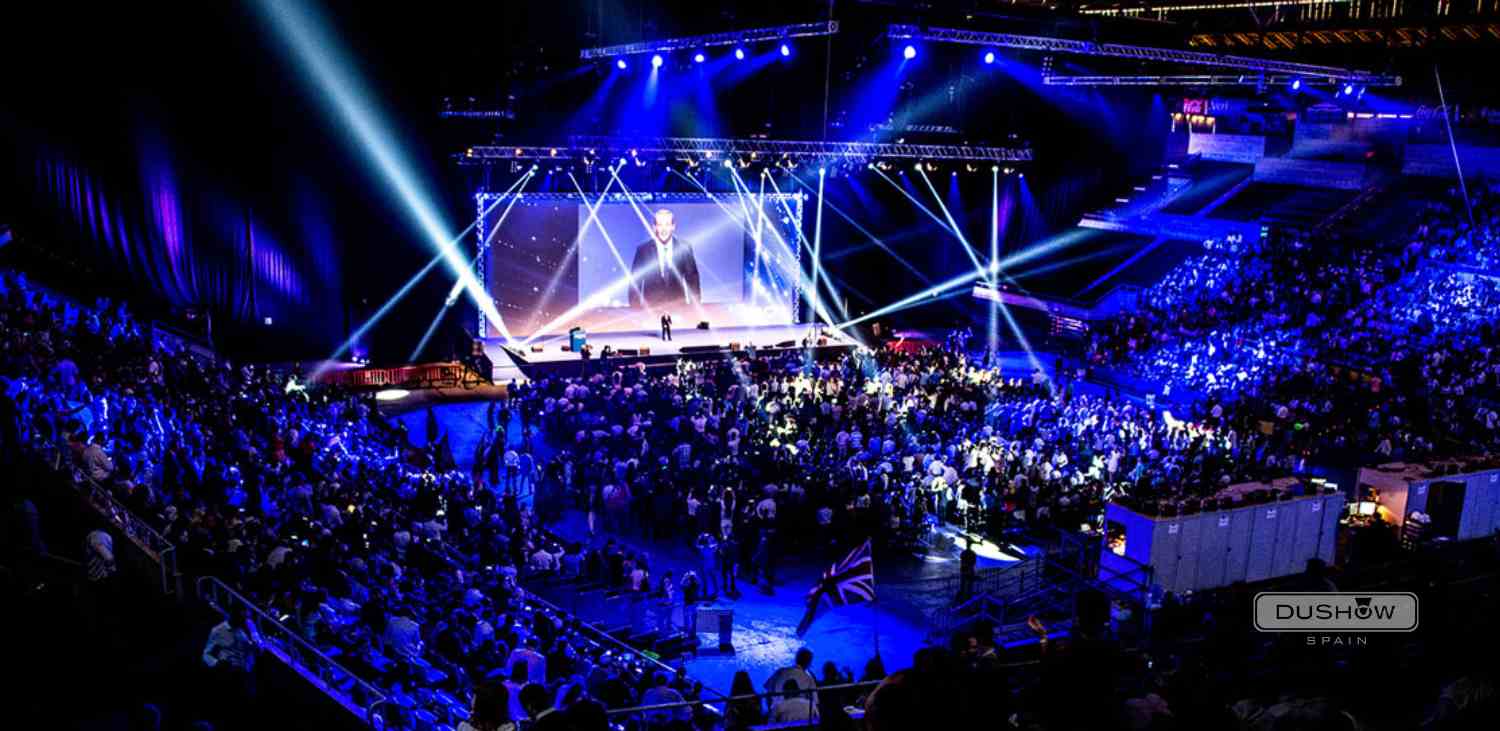Exactly How Event Production Works: A Comprehensive Take A Look At the Process
Event production is a complex and organized procedure that needs mindful preparation and implementation. It begins with establishing clear objectives and recognizing the target market. Each action, from budgeting to place choice, plays an essential function in making sure success. As the process unravels, numerous components have to line up perfectly. Yet, the nuances of this intricate procedure typically go unnoticed. What are the vital phases that add to a memorable event?

The First Preparation Stage
When starting on event production, cautious preparation is vital to guarantee a successful end result. The first preparation phase functions as the structure for all succeeding initiatives. During this phase, event producers must specify the event's purpose and objectives plainly. Recognizing the target market helps tailor the experience and messaging, guaranteeing relevance and engagement.Producers have to additionally think about the event format, whether it be in-person, virtual, or crossbreed, as this will influence different logistical elements. Picking an appropriate date and venue is essential, as it influences ease of access and availability.Furthermore, assembling a dependable team is fundamental for separating obligations and streamlining interaction. Establishing a timeline with landmarks warranties all tasks are finished on schedule. This stage entails comprehensive research, including determining prospective obstacles and creating strategies to minimize dangers. Inevitably, a well-structured preliminary preparation phase establishes the tone for an effective event production journey.

Budgeting and Resource Appropriation
In event production, effective budgeting and source appropriation are vital for success - event production charlotte. Developing economic parameters sets the structure for all succeeding choices, while resource distribution methods ensure that every part of the event is properly supported. Together, these aspects aid maintain control over expenditures and enhance using available resources
Establishing Financial Parameters
Establishing monetary specifications is crucial to the success of any type of event production, as it establishes the structure for reliable budgeting and source appropriation. This procedure starts with specifying the general spending plan, which incorporates all facets of the event, consisting of location expenses, wedding catering, and advertising and marketing. By determining offered funds, event coordinators can prioritize expenditures and allocate resources accordingly. Additionally, it is vital to perform detailed marketing research to prepare for prospective expenses and identify funding sources, such as sponsorships or ticket sales. Establishing clear financial criteria additionally aids in risk management, permitting coordinators to set aside backup funds for unforeseen expenses. Inevitably, a distinct budget works as a roadmap, guiding the event production group in the direction of achieving their objectives while preserving financial control.
Source Distribution Strategies
Reliable resource circulation methods are important for optimizing the impact of an occasion while adhering to budget plan constraints. Effective event production requires a thorough method to budgeting and source allotment. Coordinators should focus on important components such as venue, wedding catering, and technology, making certain that funds are assigned to locations that enhance guest experience. A detailed budget plan needs to describe anticipated costs and determine areas for possible expense savings, such as negotiating with vendors or checking out sponsorship chances. In addition, tracking expenses throughout the planning process assists protect against overspending. By employing calculated resource circulation, event manufacturers can supply a memorable experience while preserving financial obligation, inevitably adding to the total success of the event.
Place Selection and Logistics
Choosing the best location is necessary to the success of any kind of event, as it establishes the phase for the overall experience. Venue selection involves evaluating various factors, including capability, access, and area. Organizers have to take into consideration the target market and the nature of the event, making certain the location straightens with the event's goals.Logistics play a significant duty in this process, entailing setups for seats, audiovisual devices, and catering solutions. A well-chosen location should help with smooth flow for participants and personnel, improving engagement.Additionally, evaluating possible locations for facilities like auto parking, washrooms, and fire escape is vital for security and convenience. The timeline for safeguarding the location is also essential, as prominent locations might book rapidly - event production charlotte. Detailed planning and prompt execution can eventually add to a seamless event experience, making location selection and logistics essential parts of successful event production.
Imaginative Concept Development
While the place sets the physical stage, imaginative concept advancement forms the event's identity and narrative. This procedure starts with identifying the event's function and target market, allowing event producers to create an engaging theme that resonates with guests. Conceptualizing sessions frequently consist of varied viewpoints, fostering ingenious ideas that straighten with the event's goals.Once a motif is established, visual aspects such as shade schemes, signs, and design are designed to improve the general ambience. Narration strategies might likewise be integrated to produce an interesting trip for individuals, assuring a remarkable experience. Additionally, considerations concerning home entertainment, activities, and interactive components are lined up with the selected idea, strengthening the style throughout the event.Ultimately, efficient innovative concept growth warranties that every facet of the event functions cohesively, leaving a long-term impact on guests and satisfying the event's goals. This foundational job lays the foundation for succeeding planning and execution stages.
Teaming up With Suppliers and Vendors
Effective event production hinges on reliable cooperation with suppliers and providers. Selecting reliable companions, bargaining contracts effectively, and making certain prompt shipments are crucial actions in this procedure. Each of these elements adds considerably to the general success and smooth execution of an occasion.
Selecting Reliable Allies
Exactly how can event planners assure a seamless production experience? Choosing reliable companions is crucial in achieving this goal. Event coordinators should perform complete research to recognize vendors and distributors with a proven track document of excellence. This consists of examining recommendations, reviewing portfolios, and reviewing customer comments. Planners ought to focus on companions who demonstrate professionalism and reliability, prompt interaction, and a determination to team up. Building strong partnerships fosters depend on wikipedia reference and makes it possible for quick analytical throughout the event. In addition, it is advantageous to select regional suppliers that recognize the venue and regional logistics. Eventually, an effective event rests on the harmony in between organizers and their partners, ensuring that every element of production runs smoothly and effectively.
Bargaining Agreements Effectively
Effective negotiation of contracts is an important action in the partnership in between event coordinators and their suppliers and distributors. This procedure entails clear interaction of assumptions, deliverables, and timelines. Organizers need to perform thorough research on market rates and industry criteria to develop a standard for settlements. It is necessary to produce a collective environment, motivating open dialogue about terms, rates, and possible backups. Coordinators ought to also focus on recognizing the supplier's capabilities and limitations to straighten their requirements efficiently. Flexibility can lead to equally valuable contracts, fostering long-term partnerships. Crafting well-defined agreements that consist of particular efficiency metrics can assist ensure accountability, inevitably resulting in successful event implementation and fulfillment for all parties entailed.
Making Sure Timely Shipments
Timely distributions are vital for the smooth execution of any type of event, requiring attentive partnership in between coordinators and their suppliers and providers. Reliable communication is vital, as it assists establish clear expectations regarding distribution schedules, quantities, and details requirements. Organizers frequently develop in-depth timelines to lay out vital landmarks, ensuring all celebrations continue to be aligned throughout the process. Normal check-ins with suppliers can help determine possible hold-ups early, permitting Read Full Report positive options. In addition, constructing solid relationships with trustworthy distributors fosters trust and responsibility, which can lead to much better service and prioritization. By prioritizing these collective initiatives, coordinators can decrease disturbances, therefore enhancing the overall performance of event production and ensuring that all necessary materials and services arrive as intended.
Marketing and Promo Approaches
While arranging an event, the success of marketing and promo methods can considerably influence presence and interaction. Efficient strategies often consist of a combination of electronic advertising, conventional advertising and marketing, and grassroots outreach. Making use of social media systems permits real-time communication and targeted marketing, reaching certain demographics efficiently. Email advertising and marketing campaigns can better involve potential guests with individualized content and reminders.Collaborations with influencers or sector leaders can likewise improve reputation and broaden reach. Developing appealing web content, such as videos or blog sites, aids to generate buzz and endure rate of interest leading up to the event. In addition, leveraging early-bird discount rates and unique perks can incentivize ticket purchases.Promoting with typical channels, such as posters or regional media, continues to be relevant, particularly in community-focused occasions. An extensive strategy that incorporates multiple methods warranties maximum visibility and interaction, inevitably adding to the event's success and the creation of an unforgettable experience for participants.
On-Site Implementation and Monitoring
On-site implementation and management are necessary parts that establish the overall success of an event. Effective coordination during the event ensures that all aspects straighten with the planned agenda. Event managers supervise logistics, consisting of vendor sychronisation, devices setup, and guest solutions. Keeping an eye on timelines and resolving any kind of unanticipated problems are essential for preserving a smooth experience.The personnel plays a considerable function, as qualified personnel are accountable for various jobs such as enrollment, details dissemination, and technical support. Interaction amongst employee is vital; it promotes a collaborative environment and enables fast resolution of challenges.Additionally, security protocols must be abided by, securing the wellness of all attendees. Post-event analyses are additionally component of on-site administration, providing understandings for future enhancements. By focusing on these elements, event producers can develop unforgettable experiences that meet or exceed participant expectations while attaining the event's goals.
Frequently Asked Inquiries
How Do I Pick the Right Event Style?
Selecting the best event motif includes taking into consideration the target market, event purpose, and place. Researching present trends and gathering input from stakeholders can additionally inspire imaginative ideas that reverberate and create a remarkable experience.

What Prevail Blunders in Event Production?
Typical mistakes in event production frequently include poor planning, poor interaction among staff member, spending plan mismanagement, ignoring to take into account the target market's requirements, and failing to perform a thorough post-event analysis for future enhancements.
How Can I Gauge Event Success?
To determine event success, one can analyze participant fulfillment, engagement degrees, budget adherence, and post-event comments. Key efficiency signs, such as ticket sales and social media sites interactions, additionally offer beneficial insights right into overall efficiency.
What Should I Do if It Rains on the Event Day?
In case of moisten the day, the organizer must implement contingency strategies, such as safeguarding tents or moving tasks indoors. Interaction with participants about modifications is necessary to ensure a smooth experience regardless of weather challenges.
Exactly How Can I Ensure Guest Involvement Throughout the Event?

Comments on “Iconic local events driven by professional event production charlotte”